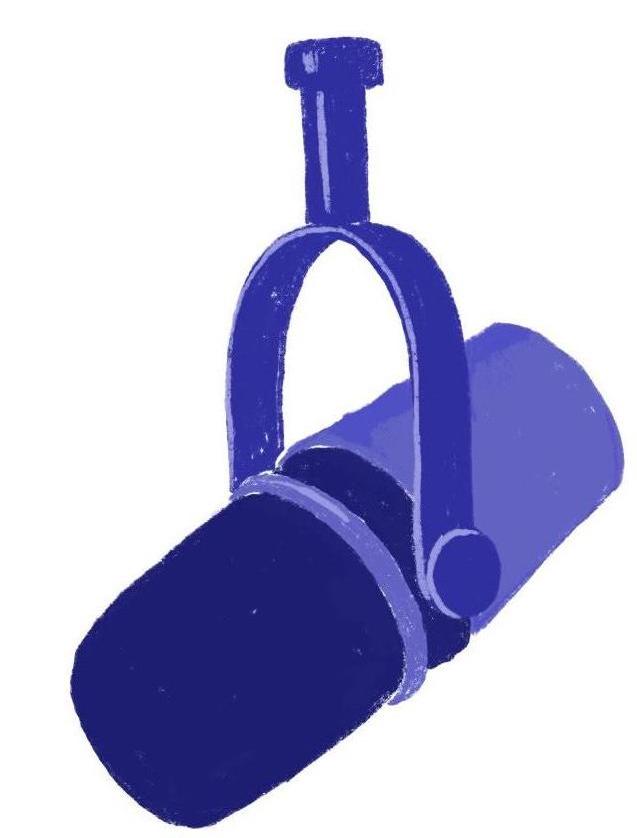ARTS & CULTURE
The Art of the
PODCAST
THE PACIFIC SENTINEL
Wondery’s Lindsay Graham, from popular podcasts like American Scandal and Wicked Game, discusses life as one of the most recognizable narrators in the business and how podcasting can change the world.
by Conor Carroll Illustrations by Greer Siegel
PS: Can you tell us a little bit about what you’ve been working on?
The world of podcasting used to be smaller, more niche, and lacking in professionalism, according to Wondery’s popular podcaster and narrator Lindsay Graham. In a recent discussion with the Pacific Sentinel, Graham describes podcasting in a pandemic and his plans for the future. Wondery, an award winning podcast production company, was acquired by Amazon Music in December 2020. Founded in 2016 by former Fox News executive Hernan Lopez, Wondery has become a top-five podcast producer, with more than 40 million downloads in December 2018 alone, and in 2019 received six iHeartRadio Podcast Award nominations and a “Most Bingeable Podcast” award win for their series “Dr. Death.” Despite Wondery’s success, Graham, their lead ad producer, and most recognizable narrator, is helpful and humble, and even hopes to create a curriculum for a class on podcasting. With podcast ad revenue looking to surpass $1 billion this year and big-tech inundating the podcast industry, Graham’s observations are as important as ever to understanding the art of the podcast.
Graham: Yeah. It’s not ready for public release yet, but . . . I’m considering putting together a start-to-finish podcasting course. I found that (1) I like answering questions like yours and others, and (2) there seems to be, frankly, a market for it. There’s a lot of podcasting courses that seem very entrepreneurially oriented or—and I do a different type of podcast. So I thought it might be lucrative as well. We’ll see. But that’s it.
12
PS: No it’s smart. That was my impetus for reaching out to you, frankly. I do my own small one for myself, and then I’m working on two for school. I go to Portland State University. I have to agree with you—a lot of what I’ve seen out there… are rather, remedial. I’ve dabbled a bit in looking them up but they’re not very instructive. So I figured… it’d be alright if I reached out. Graham: No problem. Your questions might end up in the curriculum. Who knows. PS: Yeah. And I reached out to my editing team.... we put together some questions to ask you. So this is from the entire editorial team as well as myself. So basically just kind of going to start jumping in here. So, walk me through the process from start-to-finish .
. . the process from pre-pandemic obviously, walking into a studio to leaving at the end of the day, what you work on when you’re working on a podcast, an episode specifically. Graham: Sure. Actually the pandemic hasn’t changed my work at all. I’m in the room right now that I’m in… 8-10 hours a day. PS: Oh wow, really? Graham: Yeah, I own this little studio in a back building of a property that now my parents own, but at the time I owned it. It’s a little—I guess it’s probably a three car garage that’s split into two rooms, this is the smaller room. I’m trying to move into the bigger room but I’m also doing all the work so it’s slow. But yeah I roll up, probably—I arrive at 9, and then I sit down here and get to work. Most of the day is spent at this point managing the business. So that requires a lot of emailing between both my client (which is Wondery, predominantly) and my team (I have two employees right now—an editor and a sound designer). PS: And your company is… Graham: Air Shift. Um, on days that I have something to record, long-form—like an episode—honestly, I’m lucky that (1) I’m able to do this and (2) that my team is good enough




